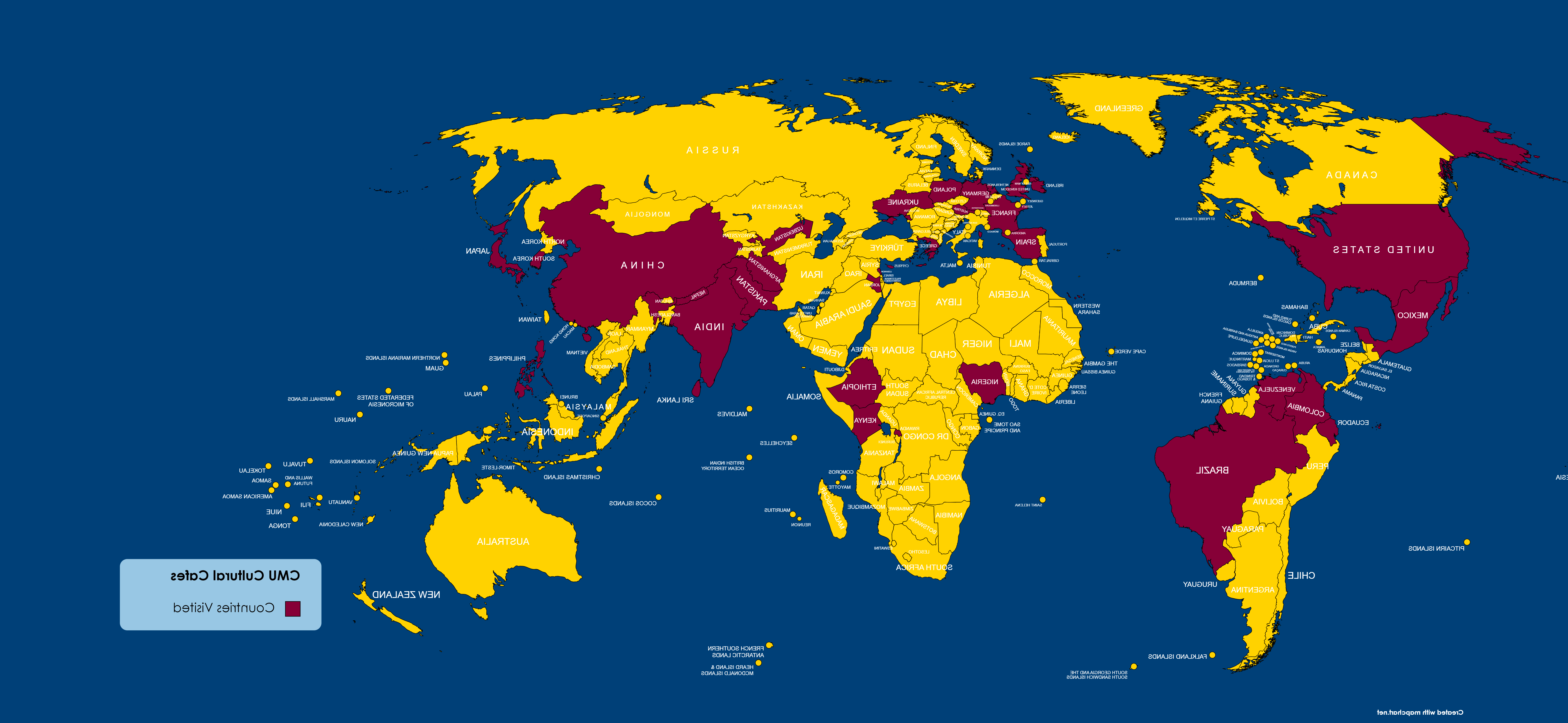Tomlinson Library hosts a variety of events, often in collaboration with CMU faculty, departments, and offices, with an eye toward celebrating campus community diversity, achievements, and more. Below you'll find information about these recurring events. See our upcoming Events & Workshops at Tomlinson.
Additionally, Library staff developed a set of Metaliteracy Learning Outcomes with its Cultural Café Series in mind. Metaliteracies focus on the affective, behavioral, cognitive, and metacognitive aspects of personal growth and development. The metaliteracies below stem from the AAC&U's Intercultural Knowledge & Competence VALUE Rubric and Metaliteracy.org's 2018 Metaliteracy Goals & Learning Objectives. Our learning outcomes focus on: Cultural Self-Awareness; Knowledge of Cultural Worldview Frameworks; Empathy; Verbal and Nonverbal Communication; Curiosity; and Openness.
The Office of Academic Affairs and Tomlinson Library are proud to honor CMU's authors and creators through a biennial Author Showcase event. Faculty and staff are invited to share notifications about their books, book chapters, articles, artwork, and music and theatre performances. Sabbatical and Fulbright research and scholarship activities are also welcome!
The Cultural Café Series was created to introduce cultures and customs from around the world to the campus community. Our Cafés are coordinated by Tomlison Library staff in conjunction with CMU's International Student Programs office.
Places we have "visited" (through Oct. 2023):

Under the guidance of Dr. Mickey Stellavato, our Mass Communication Program's advanced photojournalism students took portraits of Cultural Inclusion Council members as well as other CMU students in a celebration of campus diversity. The Voices Seen Exhibit is a celebration of our campus community in all its shapes, forms, and voices.
|
Cultural Café Learning Outcomes |
AAC&U VALUE Rubric: Intercultural Knowledge & Competence |
Metaliteracy.org: Metaliteracy Goals & Learning Objectives (2018) |
||
| Cultural Self-Awareness |
Student will recognize and demonstrate their knowledge gains—and knowledge gaps—associated with cultural rules and worldviews, and their own biases: Student will articulate what they have learned and shifts in their understanding in relation to members of another culture. |
Cultural Self-Awareness (Knowledge) Articulates insights into own cultural rules and biases (e.g., seeking complexity; aware of how her/his experiences have shaped these rules, and how to recognize and respond to cultural biases, resulting in a shift in self-description). |
Goal 1. Actively evaluate content while also evaluating one’s own biases. 1.10 Examine how you feel about the information presented and how this impacts your response. Goal 3. Produce and share information in collaborative and participatory environments. 3.6 Recognize that learners are also teachers and teach what you know or learn in collaborative settings. Goal 4. Develop learning strategies to meet lifelong personal and professional goals. 4.2 Assess learning to determine both the knowledge gained and the gaps in understanding. |
|
| Knowledge of Cultural Worldview Frameworks |
Knowledge of Cultural Worldview Frameworks (Knowledge) Demonstrates sophisticated understanding of the complexity of elements important to members of another culture in relation to members of another culture in relation to its history, values, politics, communication styles, economy, or beliefs and practices. |
|||
| Empathy | Student will reflect upon and interpret the information presented, accounting for alternative worldviews and their own biases: Student will take steps to demonstrate and articulate understanding of multiple perspectives with a supportive mindset through verbal and non-verbal communication strategies. |
Empathy (Skills) Interprets intercultural experience from the perspectives of own and more than one worldview and demonstrates ability to act in a supportive manner that recognizes the feelings of another cultural group. |
|
|
| Verbal and Nonverbal Communication |
Verbal and Nonverbal Communication (Skills) Articulates a complex understanding of cultural differences in verbal and nonverbal communication (e.g., demonstrates understanding of the degree to which people use physical contact while communicating in different cultures or use direct/indirect and explicit/implicit meanings) and is able to skillfully negotiate a shared understanding based on those differences. |
|||
| Curiosity |
Student will consciously seek information and ask complex questions about other cultures: Student will suspend judgment and pursue a variety of sources and viewpoints in order to interact with and learn from culturally different others. |
Curiosity (Attitudes) Asks complex questions about other cultures, seeks out and articulates answers to these questions that reflect multiple cultural perspectives. |
Goal 1. Actively evaluate content while also evaluating one’s own biases. 1.4 Consciously seek information from a spectrum of viewpoints and sources. Goal 4. Develop learning strategies to meet lifelong personal and professional goals. 4.7 Effectively communicate and collaborate in shared spaces to learn from multiple perspectives. |
|
| Openness |
Openness (Attitudes) Initiates and develops interactions with culturally different others. Suspends judgment in valuing her/his interactions with culturally different others. |
